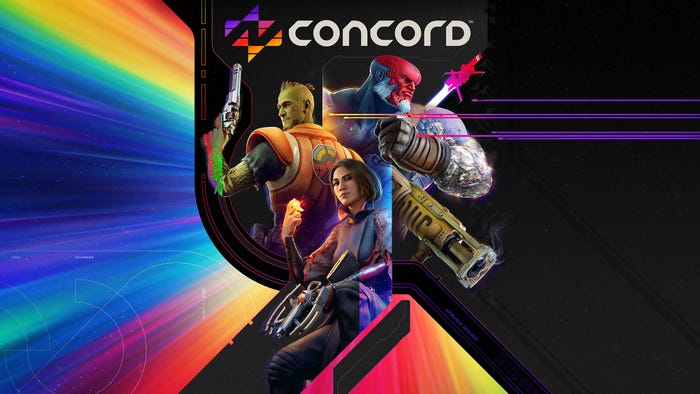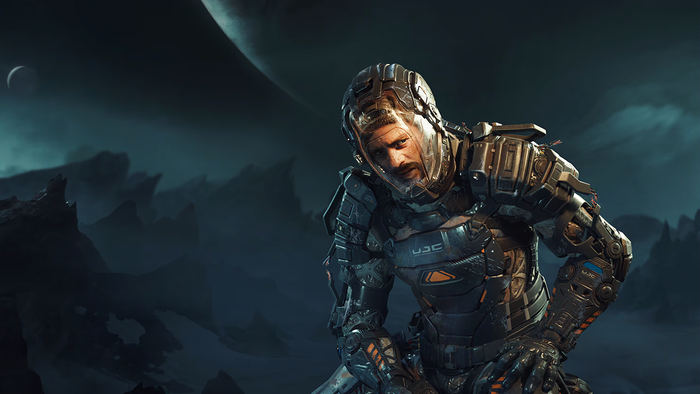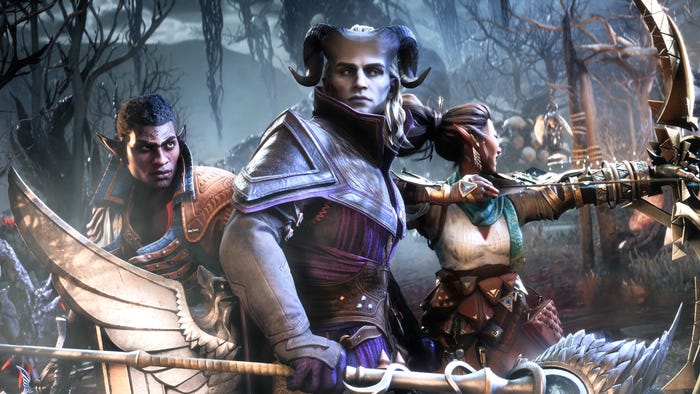Iron Galaxy's lessons learned on the path to Killer Instinct
Iron Galaxy chief Dave Lang speaks to how his studio took over Killer Instinct and what he's learned in the tricky process of growing from a tech contractor to a developer of original games.

Iron Galaxy is tough to pin down. The Chicago-based studio got its start in 2008 as a tech shop and development gun-for-hire, helping publishers and studios ship their games on new platforms -- or just ship them period. In the years since, it's worked on everything from original IP (Wreckateer) to co-development deals (Divekick) and technical ports (Borderlands 2). Now, the company has split the difference and stepped in to take over development of Double Helix's 2013 Killer Instinct reboot -- a rare move in game development. So I recently called up studio chief Dave Lang (pictured) to ask how it happened, and what it's like to transition from helping others make games to making your own. "I imagine it's a lot like how child actors in Hollywood feel they get typecasted," says Lang, with a laugh. "Independent of how you change and evolve the company, it's really hard to get people to see you in a different way." Lang says he's been trying to make the change slowly, over time, keeping Iron Galaxy working on porting games like Ms. Splosion Man and Borderlands 2 while simultaneously launching original projects like Wreckateer and Divekick. "We just kinda layered in original game creation as like, another business unit," notes Lang. "That's proven a relatively successful strategy, but it's still really hard to get people in the industry to think of us as a game creator."
How do you fill another developer's shoes?
Of course, Iron Galaxy didn't create the Killer Instinct franchise; it didn't even create this latest iteration. Lang and his team effectively took over continued development of the game from creator Double Helix, a situation that Lang and I agree is somewhat unique; only Amnesia: The Dark Descent developer Frictional Games' decision to allow The Chinese Room to make an Amnesia game comes close. "Killer Instinct was a super-weird case; Microsoft called me up like a year ago and was like ‘yeah, we uh...we might need a new developer for KI," says Lang. Iron Galaxy had been working with Microsoft for years at that point and had demonstrated a predilection for working on fighting games, so it wasn't so surprising that the publisher would contact them
"You don't make money by working on things; you make money by shipping things."
about taking over development of Killer Instinct; what was surprising was that Microsoft wouldn't say why. "They wouldn't tell me why Double Helix couldn't do it anymore, and I was a little nervous about that," recalls Lang. "I wasn't nervous that we couldn't do the work, but...as a developer, you can never backstab another developer. You just can't do it." Lang says he had to cajole Microsoft into putting him in touch with Double Helix chief Patrick Gilmore, who also kept mum about why Double Helix had to let the game go but assured Lang that the split with Microsoft was amicable -- and that Iron Galaxy could take over Killer Instinct with Gilmore's blessing. "After that was all the fun stuff; we got to dig into their engine and their tools and kinda start making the game," says Lang. "It was definitely a weird couple of months, but once everything came out about the Amazon acquisition it all made complete sense." Most of Double Helix's technology and production pipelines made sense to Iron Galaxy as well, though Lang says that has much to do with his studio's experience "parachuting in" to studios on contracts to help them ship or port their games. "I assume one of the reasons MS thought we'd be a good fit for this thing is that it's kind of our wheelhouse; we do a lot of port work, but more than that we do a lot of tech support for bigger game teams," says Lang. "We helped Bungie a little bit on the PS3 version of Destiny, we did a lot of stuff at Irrational with Bioshock Infinite...we just embed engineers on their teams, so we have to get really good at jumping from tech to tech to tech."
Learn how others work, not what they work with
That's what makes Iron Galaxy so intriguing to study, from a game industry perspective: few studios have worked with such a wide array of developers, or helped ship such a broad variety of games. Across all his years of contract work, Lang says the number one thing he's learned about game development is that people tend to overvalue what they create and undervalue how they do it. "Whether it's technology, a toolset, an IP...whatever it is, developers tend to overvalue everything. In jumping from studio to studio and looking at all these different codebases, the stuff we've learned that's super-valuable is all production/process stuff," says Lang. "It's ways to organize and use people more efficiently, and get them to communicate better. It's like ‘oh look at their build farm! They have the same build farm everyone else does, but they've
"It's not knowledge that's valuable at all, in my opinion; it's the wisdom."
implemented the interface a little differently and it makes it way easier to use from the content creation side. So it's not knowledge that's valuable at all, in my opinion; it's the wisdom. It's knowing how to use all your different resources and when, and what is best for your team." And yet, outside of friendly chatter and designated industry knowledge-sharing grounds like GDC, many big-budget studios keep their production wisdom close to the vest. Iron Galaxy has peeked behind the curtain more often than most, and Lang says that -- by and large -- "I tend to think all that secrecy stuff is pretty silly." "But at the same time, I have to recognize that this is an impossibly competitive arena, especially when you factor in AAA productions and the marketing budgets that come with that," adds Lang. "From that perspective, even if I give my competitor just a 1 percent advantage by sharing my knowledge, like...one percent of a hundred million dollars is actually a lot of money!" "So, I get it. I think 99 times out of a 100 it's a waste and kind of silly, but there you go."
Ship and learn
And what wisdom would Iron Galaxy share with other developers? Ship early, ship often, says Lang. "I think one of the most valuable lessons I've carried with me in my career is, I used to work at Microsoft Game Studios and Microsoft has this super-cool thing they do -- I assume they still do it -- where they give you a plaque when you ship your first thing." It's colloquially known as the "Ship It" plaque. And when you ship your next game, you get to add a little metal gewgaw with the name of your game emblazoned on it. Fill up your plaque with shipped-game trophies, and you get a new plaque. "Microsoft recognizes that you don't make money by working on things; you make money by shipping things," says Lang. "It's a super-important distinction to make and understand. That's is where all the real 'game development' skills like triage, and knowing when something is ‘good enough' come from; they all develop out of that basic thought process." "That's something I've always carried with me, and looking back at the six or so years of Iron Galaxy, I think you'd be hard-pressed to find someone who has shipped -- or help ship -- more stuff than us," says Lang. "I literally don't think they exist, in the whole world." He believes that experience manifests itself in the little bits of production wisdom Iron Galaxy has picked up from other studios over the years, and he encourages other developers to talk with their peers less about what they're working on, and more about how they're working. "It's like ‘Oh, these guys use this cool tool that I can just go buy, like Code Collaborator," says Lang. "Or they use Perforce in a totally novel way I've never seen before. Or they're really good to keeping their scrum meetings to 15 minutes in the morning, and ours take an hour; what a waste of time, we need better discipline!" "All these little things that are wisdom, not knowledge, that you can extract from helping other people, help you develop best-in-breed practices pretty quickly if you're methodical and motivated to do so," says Lang. "For us, without that kind of mindset we wouldn't be as successful as we are now."
About the Author
You May Also Like








.png?width=700&auto=webp&quality=80&disable=upscale)
.png?width=700&auto=webp&quality=80&disable=upscale)